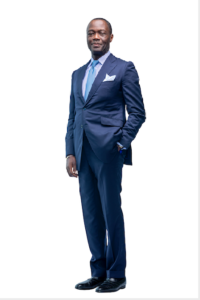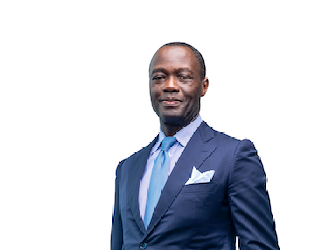Following the appointment of Kenyan Jeremy Awori as CEO of Ecobank Transnational Incorporated (ETI), Financial Afrik spoke with Alain Nkontchou, Chairman of the Group’s Board of Directors. Exclusive.

As the name of Ecobank’s new CEO is revealed, can you come back to the criteria that led to the appointment of Jeremy Awori?
A thorough and robust search and recruitment process has been put in place for the recruitment of the new CEO. ETI has engaged a specialist executive search firm to conduct a detailed search process and proactively seek out top performing CEOs, whether or not they are actively seeking a new role. The firm has been instructed to consider both internal and external candidates. Candidates have gone through a rigorous selection process to confirm and ensure that they have the required quality and skills. Once the candidates were shortlisted, the final stage interviews took place, following which the board of directors decided that Jeremy Awori was the best among several excellent candidates to be offered the position. We are all happy with this choice and are ready to assist Jeremy in his new role.
The Bank is present in 35 countries and on 3 African stock exchanges. Does the expansion program include opening up to new African countries in the medium term?
The Ecobank Group operates in 33 African countries, in addition to having representative offices in Addis Ababa, Ethiopia, and Johannesburg, South Africa. The Group also has a banking license in France and offices in Beijing, China, London, United Kingdom, and Dubai, United Arab Emirates. At the stage we are at, the appetite for expansion is relatively limited. Rather, we seek to consolidate our current geographic presence and ensure that we meet the challenges we face in order to have a competitive advantage, ensure better profitability and return on invested capital.
How do you explain the low valuation of the group on its various financial markets compared to its total balance sheet and its mathematical value?
The valuation of an organization like Ecobank with such a large pan-African presence must also take into account its performance. If we can see that its valuation is low, the fact remains that this low valuation is made up for by compensation for the title in terms of a relatively high dividend. Today we see significant progress of the Bank compared to what it was in the past. In 2021, we distributed dividends after a long period. The dividend yield is estimated around 8% – 10%, depending on the exchange rate used. This return in dollars is quite significant given the structure of US interest rates. The Bank’s current momentum over the past 6 years is quite positive. All the credit goes to the Management and the outgoing CEO for the work done to clean up the balance sheet and put the Bank on a relatively constant trajectory.
Today we stand out from our past history and we are entering a new phase of consolidation to generate significant income and returns. For example, the current difficult macroeconomic conditions in Africa, particularly in Nigeria, have had an impact on the banking sector in general. Ditto the past history with Ecobank in Nigeria. And in such a situation, the valuation of a company can suffer unnecessarily. That said, our stock price has risen 45% in 2021 and so far in 2022 it has risen 27%, outperforming our banking peers (down 13% on average) on the Nigeria Stock Exchange (NGX). The undervaluation of a security must take into account the opportunity to hold it via dividends. And we will continue to put efforts in place to distribute dividends.
SME financing remains problematic in Africa. What is Ecobank Group’s approach to this?
SME financing is at the heart of our business. Ecobank’s commercial banking division – which serves SMEs – is committed to encouraging and supporting SMEs, including women-owned businesses, to succeed and take advantage of growth opportunities, including of Zlecaf. Ecobank has significantly increased its deposit base, which increases our lending capacity, as well as our strong capital base and our ability to access international debt markets. In the fourth quarter of 2021, we successfully increased our risk-sharing facilities with Development Finance Institutions (DFIs) by an additional $118 million to end the year at $259 million. We continue to engage with these institutions to increase our support for risk sharing and help us expand access to credit for SMEs and sustainably scale up.
In November 2020, we launched the Ellever program to provide financing, banking, training and support to women’s businesses. By the end of last month, i.e. August 2022, we had onboarded 40,400 customers, granted loans amounting to $208 million and attracted deposits amounting to $337.4 million. Ecobank also places great importance on non-financial support for SMEs. Last year, we trained 450 SMEs through our flagship MSME Training for Financing Program in 8 pilot countries. This year, we expanded the program to all of our markets on a regional basis.
As the bank with the largest footprint on the African continent, it is imperative for us to support initiatives aimed at boosting intra-African trade and business growth. We do this through our ZLECAF webinar series where SMEs receive relevant information on how CMB clients can benefit from the new African single market and how Ecobank can support them through our business, digital and management solutions. cash. We help our SMEs gain an online presence through our partnership with Google. With the Google Business Profile, customers and potential customers of our SMBs are able to find their businesses when they search online.
As part of Ellevate Equip, our training and capacity building platform, we are developing a gender approach for gender equality. Thus, we organized, in partnership with the Global Business Schools Network, a leadership program for our best Ellevate clients between April and July of this year. The pioneering class of graduates was made up of participants from Cameroon, Ghana, Kenya, Liberia, Malawi, Nigeria, Senegal, Sierra Leone, Uganda, Zambia and Zimbabwe. Participants benefited immensely from world-class faculty drawn from the MIT Global Program, Insead Africa Initiative and Insead Gender Initiative, American University of Cairo School of Business, Stanford SEED, and the ‘University of Cape Town Graduate School. Ecobank’s success in the SME sector is further demonstrated by the numerous awards won by the bank.
The bank’s shareholding today is very differentiated. Are changes to be expected at this level?
ETI’s shareholding is concentrated. Thus, 4 major shareholders hold approximately 70% of the outstanding shares (Nedbank, QNB Arise, PIC) plus the other shareholders. Any change in shareholding will require the approval of at least 2 of them. I am not in a position to know if they would have any reason to do so. What is certain is that the support of the main shareholders (Nedbank, QNB, Arise and PIC/GEPF) is very strong. Ecobank enjoys significant shareholder support and confidence as demonstrated in 2021 by one of our institutional shareholders, Arise B.V., by investing in our entire $75 million issuance perpetual non-cumulative Additional Tier 1 (AT1) bonds. Ecobank Group has a strong capital base – our total Basel II/III CAR was estimated at 14.8% as of March 31, 2022 from a low of 11.5%.
Basically what will be the mission of the new CEO after the successful consolidation by Ade Ayeyemi?
Our objective is to continue to grow, to win back the markets, to develop our balance sheet by adapting to economic cycles. Our strategic axes revolve around these major blocks:
– Risk management
– Cost management by taking advantage of digitalization
– Consolidate our leadership in digital
– Improve the customer experience
– Increase the customer base and the profitability of this customer base
– Use our geographic presence and our technology to expand our offer of products, services and solutions at lower cost
– Consolidate efforts in Nigeria, which is an important market for the Group, to become aggressive in an economic environment that faces many challenges and create value for the Group. We have confidence in the future, which will be assessed by the management of non-performing loans, the quality of the balance sheet, risks, the size of our customer base, and our digital competitiveness. Ultimately, Jeremy comes to pursue and consolidate these large blocks that will contribute to the growth of our Group; and the Board of Directors is ready to support it in this mission.



